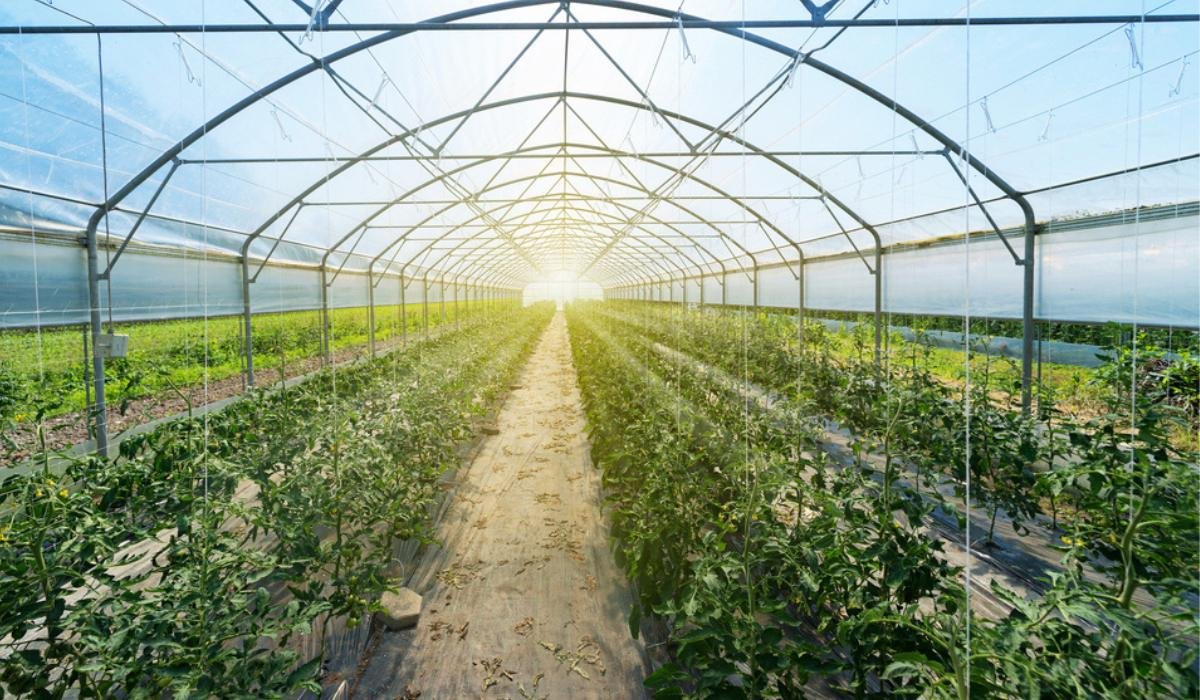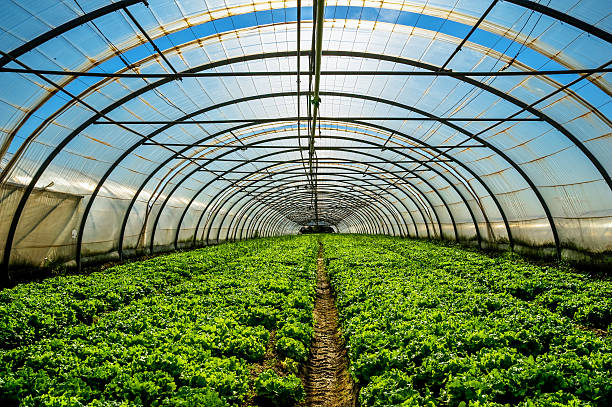Clarifying Quality: Monarch Greenhouse Sheds Utah Exceptional Layouts
Wiki Article
Greenhouse Farming: Maximizing Plant Yields and Sustainability
Are you wanting to maximize your plant yields while promoting sustainability? Look no further than greenhouse farming. With regulated atmospheres and reduced water use, greenhouse farming provides the ideal service for year-round manufacturing of fresh produce. By harnessing the power of modern technology and sustainable methods, you can guarantee a plentiful harvest while decreasing your ecological influence. Discover the benefits of greenhouse farming and start gaining the advantages today!Advantages of Greenhouse Farming
Are you questioning what makes greenhouse farming so useful? Well, let me tell you! Among the major benefits of greenhouse farming is the capability to control the atmosphere in which plants are grown. With a greenhouse, you can control variables like temperature, light, and humidity to optimize plant development. This suggests that you can grow plants throughout the year, no matter the weather problems outside.One more advantage of greenhouse farming is the decrease in water use. Greenhouses are made to be water-efficient, with systems that catch and reuse water, lessening waste. This is particularly crucial in areas where water deficiency is an issue. By using water more effectively, greenhouse farming assists to conserve this precious source.
Additionally, greenhouse farming enables much better parasite and illness administration. With the regulated atmosphere, it is less complicated to manage the spread and avoid of conditions and parasites. This lowers the need for dangerous pesticides, making greenhouse-grown plants safer and more eco-friendly.
Moreover, greenhouse farming provides security against extreme weather occasions. Plants expanded in greenhouses are shielded from heavy rain, solid winds, and hailstorms, which can harm or damage outdoor crops. Monarch Decorative Greenhouse Utah. This security makes sure a more secure and reliable crop yield, even throughout unforeseeable weather problems

Optimizing Crop Yields With Regulated Environments
To make the most of crop returns in greenhouse farming, you can attain optimum outcomes by regulating the setting. One of the key advantages of greenhouse farming is the ability to manage these ecological elements, permitting you to customize them to the specific demands of each crop. By executing these regulated atmospheres, you can make the most of plant returns and achieve consistent, high-grade fruit and vegetables throughout the year.Supporting Sustainability Via Greenhouse Farming
Make best use of sustainability in greenhouse farming by implementing reliable resource management techniques. One key aspect of promoting sustainability is the administration of water usage. By applying systems such as drip watering and recirculation, you can substantially minimize water waste and make sure that every decrease matters. Furthermore, using naturally degradable and natural products for pest control and fertilization can help decrease environmental influence. Integrated Insect Management (IPM) strategies, as an example, entail using advantageous insects to regulate bugs, minimizing the need for hazardous chemicals. In addition, energy usage can be decreased by utilizing renewable resource resources, such as photovoltaic panels, to power greenhouse operations. This not only reduces reliance on nonrenewable fuel sources but likewise decreases greenhouse gas emissions. Proper waste monitoring is one more important aspect in advertising sustainability. Implementing recycling and composting systems can decrease the amount of waste sent out to garbage dumps while additionally giving nutrient-rich compost for plant development. Including lasting methods in greenhouse layout, such as making use of energy-efficient products and optimizing natural lights, can even more improve sustainability. By embracing these resource administration methods, you can add dig this to a much more lasting future in greenhouse farming.Reducing Water Usage in Greenhouse Farming
By applying efficient water calamagrostis management methods, you can substantially reduce water usage in greenhouse farming. Water is a necessary source in farming, and saving it not just benefits the environment however likewise assists to optimize plant yields and success. One efficient method to decrease water usage is via making use of drip watering systems. These systems provide water directly to the plant's origins, reducing dissipation and making certain that every decline is made use of effectively. In addition, surveillance and regulating the moisture levels inside the greenhouse can prevent unneeded water loss. By utilizing sensors and automated systems, you can adjust the air flow and irrigation accordingly, maximizing water use based on the certain demands of your crops. Another approach is to reuse and catch rain. Accumulating rainwater from the greenhouse roof and saving it in storage tanks allows you to supplement your watering requires without relying only on freshwater resources. Furthermore, executing mulching techniques can aid keep dirt wetness, lowering the frequency of watering. Mulch acts as an obstacle, preventing water dissipation and keeping the dirt cool and my latest blog post moist. By adopting these water-saving techniques, you can reduce water waste, preserve resources, and develop a much more lasting future for greenhouse farming.Year-Round Manufacturing of Fresh Produce in Greenhouses
You can accomplish year-round manufacturing of fresh fruit and vegetables in greenhouses by implementing efficient growing methods. Greenhouses give a regulated setting that allows you to grow crops despite the outside climate condition. One key technique for year-round production is using synthetic lights. By supplementing all-natural sunlight with synthetic light, you can prolong the growing period and make sure consistent growth throughout the year. Because they are energy-efficient and offer the best spectrum of light for plant growth, led lights are commonly used in greenhouses. Furthermore, appropriate temperature control is vital for year-round manufacturing. Greenhouses can be furnished with heating and cooling systems to keep optimal temperature levels for various plants. This makes sure that plants can prosper even during the chillier months. One more essential element is irrigation. By utilizing innovative irrigation systems such as drip irrigation or hydroponics, you can efficiently provide water to your plants while minimizing waste. Ultimately, it is crucial to regularly monitor and take care of parasites and illness. Applying integrated bug monitoring techniques and practicing good health will aid shield your crops and maintain their wellness throughout the year. By executing these strategies, you can maximize the efficiency of your greenhouse and appreciate a consistent supply of fresh produce all year long.
Verdict
Finally, greenhouse farming gives numerous benefits for taking full advantage of plant returns and advertising sustainability. By utilizing regulated settings, farmers can maximize expanding problems and raise productivity. In addition, greenhouse farming permits decreased water usage, making it an ecologically friendly option. The capability to create fresh produce year-round in greenhouses makes sure a stable supply of nourishing food (Monarch Greenhouse Utah). Overall, greenhouse farming is a reliable and sustainable approach for satisfying the demands of a growing populace while decreasing ecological effect.One of the major advantages of greenhouse farming is the capability to manage the environment in which plants are grown.To take full advantage of crop returns in greenhouse farming, you can achieve optimum outcomes by managing the setting. One of the crucial advantages of greenhouse farming is the capacity to control these ecological aspects, allowing you to customize them to the particular demands of each crop.By implementing reliable water management strategies, you can considerably reduce water use in greenhouse farming.In conclusion, greenhouse farming supplies numerous advantages for maximizing plant returns and advertising sustainability.
Report this wiki page